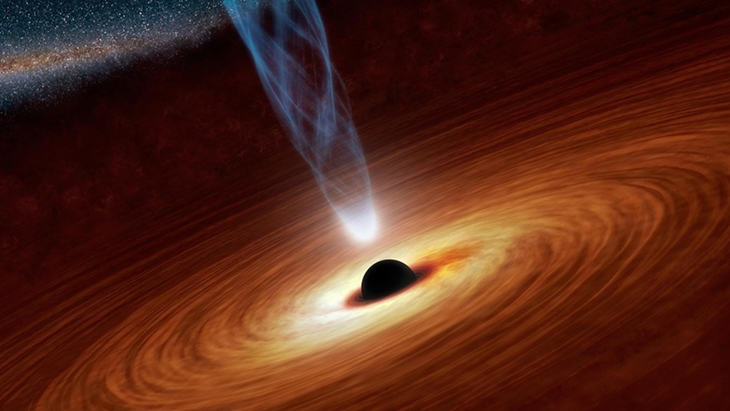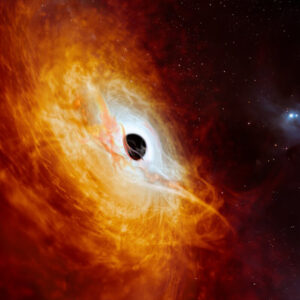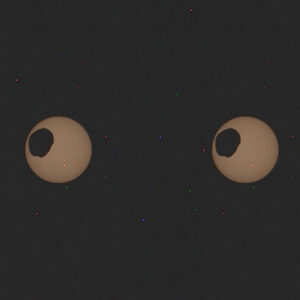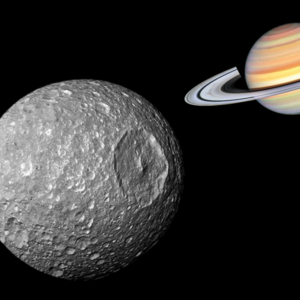
A groundbreaking discovery has unveiled the oldest black hole ever observed, dating back to the early stages of the universe, and intriguingly, it appears to still be devouring its host galaxy.
Led by the University of Cambridge, an international team utilized the James Webb Space Telescope to pinpoint this incredible black hole, which emerged just 400 million years after the Big Bang, over 13 billion years ago.
Lead author Professor Roberto Maiolino explains that the results, which are reported in the journal Nature, are “a giant leap forward.”
Its sheer massiveness – several million times greater than our Sun – challenges existing theories about the formation and growth of black holes.
Traditionally, scientists believed supermassive black holes, like those found at the center of galaxies such as the Milky Way, evolved gradually over billions of years. However, the size of this ancient black holes suggests alternative scenarios: it may have been “born big” or achieved its colossal proportions by consuming matter at an unprecedented rate, five times faster than previously assumed.
According to prevailing models, supermassive black holes originate from the remnants of deceased stars, collapsing to form a black hole roughly a hundred times the mass of the Sun. Yet, if this newly-discovered black hole adhered to conventional growth patterns, it would have taken around a billion years to reach its observed size – a timeline incompatible with the universe’s age at the time of detection.
“It’s very early in the universe to see a black hole this massive, so we’ve got to consider other ways they might form,” said Prof. Maiolino, from Cambridge’s Cavendish Laboratory and Kavli Institute of Cosmology.
Remarkably, this ancient cosmic behemoth exhibits voracious feeding habits, devouring surrounding matter with an intensity unmatched by its counterparts from later cosmic epochs.
He also says that since the first galaxies that were formed were very gas-rich, “they would have been like a buffet for black holes.”
Truly, this ancient black hole appears to possess an insatiable appetite, devouring surrounding matter with a voracity unmatched by its counterparts in later cosmic epochs.
The youthful host galaxy, GN-z11, emanates a brilliant glow emanating from its energetic black hole at the core. Although black holes cannot be directly observed, astronomers detect them through the distinctive luminosity of an accretion disc, which forms in the vicinity of a black hole’s perimeter. As the gas within the accretion disc heats up, it emits intense radiation in the ultraviolet spectrum, enabling astronomers to identify the presence of black holes.
Despite being significantly smaller than the Milky Way, GN-z11 faces potential developmental setbacks due to the black hole’s influence. When black holes consume excessive gas, they generate powerful “winds” that can disrupt the process of star formation, posing a threat to the galaxy’s survival. Interestingly, this process could ultimately lead to the demise of the black hole itself by cutting off its source of sustenance.
Prof. Maiolino regards the advancements facilitated by the JWST as a monumental leap forward, marking this period as the most exhilarating in his career.
“It’s a new era: the giant leap in sensitivity, especially in the infrared, is like upgrading from Galileo’s telescope to a modern telescope overnight. Before Webb came online, I thought maybe the universe isn’t so interesting when you go beyond what we could see with the Hubble Space Telescope. But that hasn’t been the case at all: the universe has been quite generous in what it’s showing us, and this is just the beginning,” he said.
Prof. Maiolino, leading the research team, expressed excitement over the monumental leap forward facilitated by the James Webb Space Telescope. The telescope’s unprecedented sensitivity raises the prospect of discovering even older black holes in the months and years ahead.
Prof. Maiolino and his team eagerly anticipate leveraging future observations to uncover the elusive origins of black holes, shedding light on whether they emerge fully formed or undergo rapid growth from smaller “seed” entities.
What are your thoughts? Please comment below and share this news!
True Activist / Report a typo


